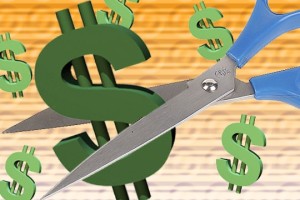How Does Income Drawdown Work?
 Income drawdown can provide a great way to keep you financially comfortable in later life. Here’s a look at how it works.
Income drawdown can provide a great way to keep you financially comfortable in later life. Here’s a look at how it works.
A Quick Look at Annuities
Income drawdown isn’t complicated, but it can be a little confusing if you’re only familiar with the annuity model of pensions. Annuities work like this: you make regular payments into your pension throughout your working life, and when you retire you use that money to purchase an annuity. An annuity is a financial product that guarantees you a fixed income until the day you die.
The problem with this model is that it may not provide for your needs. Annuity rates are dependent on market conditions, so when you go to retire, there is a chance that you may receive a poor rate. Although the payment is fixed, inflation means that it will decrease each year in real terms.
How Income Drawdown is Different
Instead of cashing in your pension on retirement day, income drawdown allows you to make regular cash withdrawals from your pension, within certain limits. You can vary the payments you receive according to your needs, and the money that you’ve invested will continue to grow.
To avail of income drawdown, you’ll need to choose a financial product such as a SIPP (Self-Invested Personal Pension) with drawdown functionality. SIPPs also offer a huge range of investment choices, giving you the opportunity to grow your fund even further.
What Kind of Payments Can I Get?
There are two types of payment available in an income drawdown pension:
- Tax-free cash: 25% of your fund is available tax-free and can be withdrawn in instalments or taken as a one-off lump sum.
- Income: Of the remaining 75%, you can withdraw money as and when you choose. These payments are subject to income tax, and their is a limit to how much you can withdraw each year. This limit is often referred to as the GAD Max, and you can withdraw up to your GAD Max each year. Whether you take this as a monthly payment or an annual lump sum is up to you.
How is My GAD Max Calculated
There are three factors in deciding your GAD limits. Your age and the value of the pension are both taken into consideration, with the intention that your income payments should be balanced in order to ensure a regular pension for the rest of your life. Gilt Yields, a figure issued each month by the Treasury, are also taken into account.
Your GAD Max is recalculated every three years, although in some circumstances you will be able to request a recalculation before then.
When Can I Start Taking Income Drawdown Payments?
You can begin drawing down form your pension at any time after the age of 55. You don’t need to have actually retired, although if you are still in employment then you’ll be liable to pay the same amount of income tax that you would pay on your normal salary.
Income drawdown payments can be reduced, increased (within GAD limits), stopped and restarted as you see fit.
Will I One Day Have to Purchase an Annuity?
No, you can continue to receive income payments for as long as you like. If you would like to purchase an annuity later on, you can do so with your remaining pension fund.
Are There Any Disadvantages to Income Drawdown?
Your pension payments are not guaranteed as they would be under an annuity arrangement. In order to keep receiving payments, you will need to have money in your pension and a bad investment choice may see your pension lose its value. This is why many income drawdown products are sold on an advice-only basis; it is recommend that you speak to a financial adviser before investing in such a product.
















